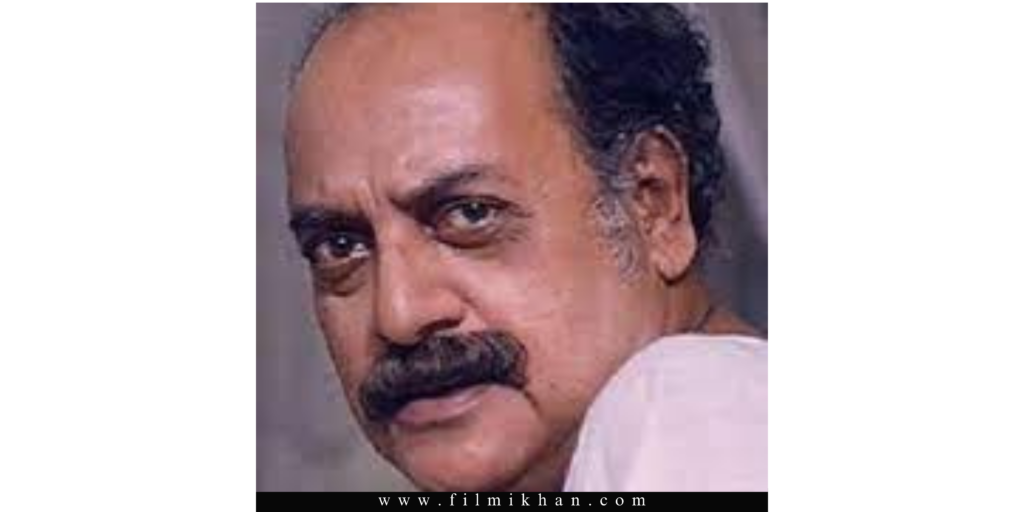
Utpal Dutt, an actor, director and writer was born on March 29, 1929, in Barisal, British India (now Bangladesh). He emerged as one of India’s most iconic actors, renowned for his versatility, depth, and unwavering commitment to his craft. His journey in the world of acting began during his college days at St. Xavier’s College in Kolkata, where he engaged in theatre activities.
Dutt’s early life was marked by his involvement in leftist political movements, shaping his ideologies and eventually influencing his artistic endeavours. He was drawn to the Indian People’s Theatre Association (IPTA), a leftist cultural organization, where he honed his skills and developed a profound understanding of social issues, which later reflected in his performances.
In the 1950s, Dutt started his professional acting career, captivating audiences with his exceptional stage presence and commanding performances. He seamlessly transitioned between comedic and dramatic roles, showcasing his remarkable range as an actor. His collaborations with renowned playwrights such as Badal Sircar and Vijay Tendulkar further solidified his stature in Indian theatre.
However, it was his foray into cinema that brought him widespread acclaim and recognition. Utpal Dutt’s memorable portrayals in films like “Gol Maal,” “Naram Garam,” and “Bhuvan Shome” established him as a distinguished character actor. He effortlessly infused his roles with depth and authenticity, leaving an indelible mark on Indian cinema.
Beyond his acting prowess, Utpal Dutt was also a prolific director and playwright. He helmed several successful plays and films, demonstrating his multifaceted talent and creative vision. His directorial ventures, including Megh (1961), a psychological thriller, Ghoom Bhangar Gaan (1965), Jhar (Storm) (1979), based on the Young Bengal movement, Baisakhi Megh (1981), Maa (1983) and Inquilab Ke Baad (1984) received critical acclaim for their bold narratives and thought-provoking themes.
His notable films were Guddi, Gol Maal, Naram Garam, Rang Birangi and Shaukeen. He received Filmfare Best Comedian Award for Golmaal, Naram Garam and Rang Birangi. He appeared in Bhuvan Shome, (awarded the National Film Award for Best Actor), Ek Adhuri Kahani and Chorus, all by Mrinal Sen; Agantuk, Jana Aranya, Joi Baba Felunath and Hirak Rajar Deshe, by Satyajit Ray; Paar and Padma Nadir Majhi, by Gautam Ghose; Bombay Talkie, The Guru, and Shakespeare Wallah, by James Ivory; Jukti Takko Aar Gappo, by Ritwik Ghatak; Guddi, Gol Maal and Kotwal Saab by Hrishikesh Mukherjee; Shaukeen, Priyatama and Hamari Bahu Alka directed by Basu Chatterjee and Amanush, Anand Ashram and Barsaat Ki Ek Raat by Shakti Samanta.
Despite facing political and social challenges due to his leftist beliefs, Dutt remained steadfast in his convictions and continued to use his platform to advocate for social change. He fearlessly addressed pertinent issues through his work, challenging societal norms and sparking meaningful dialogue.
Utpal Dutt’s contributions to Indian cinema and theatre are immeasurable, earning him numerous accolades and awards throughout his illustrious career. His legacy continues to inspire aspiring actors and storytellers, reminding them of the transformative power of art in shaping society.
In 1960, He married theatre and film actress Shobha Sen. Their only daughter, Bishnupriya Dutt, is a professor of Theatre & Performance studies at the School of Arts & Aesthetics at Jawaharlal Nehru University, New Delhi.
On August 19, 1993, Utpal Dutt passed away, leaving behind a rich body of work that continues to resonate with audiences across generations. He remains an enduring symbol of artistic integrity, passion, and social consciousness, cementing his place as one of India’s greatest actors of all time.
2 thoughts on “Utpal Dutt: The Trailblazing Actor got National award for Bhuwan Shome (1970)”